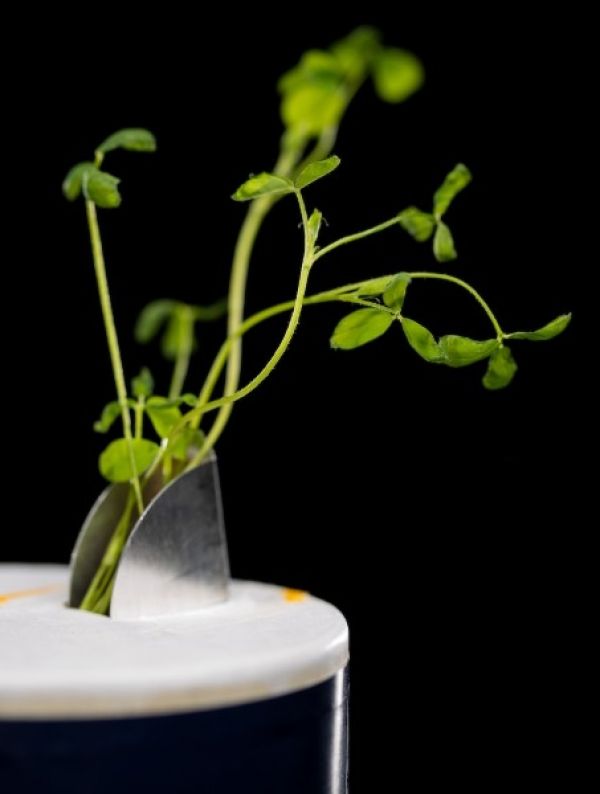A group of BYU researchers may have found a way to reverse falling crop yields caused by increasingly salty farmlands throughout the world. Led by Brent Nielsen, professor of microbiology and molecular biology, the BYU scientists have used bacteria found in the roots of salt-tolerant plants to successfully inoculate alfalfa plants against overly salty soil.
“We take the roots of these salt-tolerant plants (called halophytes), grind them up and grow the bacteria in a petri dish in the lab,” Nielsen said. “Doing this, we isolated over 40 different bacteria isolates, some of which can tolerate ocean-level salt content.”
The team then applied the bacteria isolates to alfalfa seeds through a solution and tested the alfalfa’s ability to grow in high-saline conditions. They saw significant growth of the alfalfa both in their lab and in greenhouse experiments carried out by collaborators at the Institute for Advanced Learning and Research in Virginia.
The study identifies two specific bacteria isolates — Halomonas and Bacillus — that worked to stimulate plant growth in the presence of 1 percent sodium chloride (salt), a level that significantly inhibits growth of uninoculated plants. This discovery is significant since soils throughout areas of China, Australia and the Middle East have grown increasingly salty, as well as major farmland in the southwest United States.
Continue reading at Brigham Young University
Image via BYU Photo


